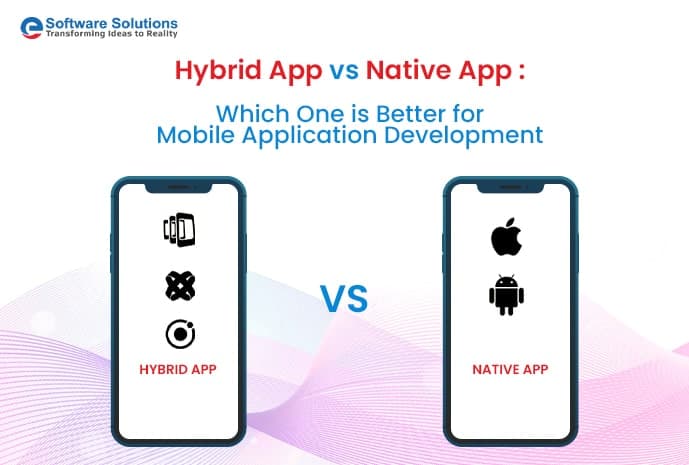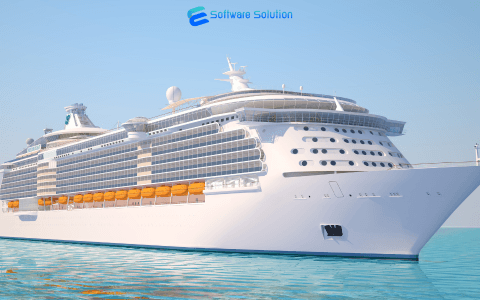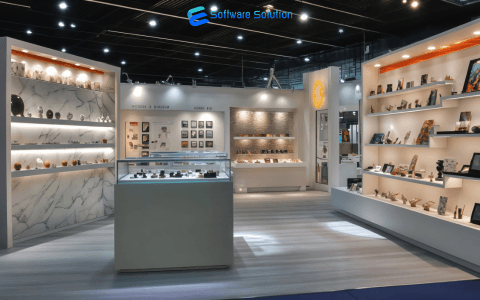
Blogs
Latest Blogs

The Next Evolution of IoT: AI-Powered Smart Devices
AI-powered IoT transforms connected devices into intelligent, autonomous systems that act on it in real time, helping businesses automate operations, improve efficiency, and stay ahead in a rapidly evolving digital world.
View Details
The Future of Search: AI-Driven SEO for U.S. Businesses
SEO keeps changing, and honestly, AI is leading the charge right now. All over the US, businesses are jumping on SEO Services in the USA powered by AI to keep up with rapid changes in search behavior. In New York, companies are using AI tools to figure out what people really want when they search online. Over in Chicago and Dallas, teams are tweaking their content to climb higher in the rankings for searches that matter.
View Details
How U.S. Companies Use Mobile Apps to Connect with Customers
With better Android and iOS development, smarter AI, and constant connectivity, companies are rolling out apps that make them faster, sharper, and way more in tune with what customers actually want.
View Details
The Next Evolution of IoT: AI-Powered Smart Devices
AI-powered IoT transforms connected devices into intelligent, autonomous systems that act on it in real time, helping businesses automate operations, improve efficiency, and stay ahead in a rapidly evolving digital world.
Read more
The Future of Search: AI-Driven SEO for U.S. Businesses
SEO keeps changing, and honestly, AI is leading the charge right now. All over the US, businesses are jumping on SEO Services in the USA powered by AI to keep up with rapid changes in search behavior. In New York, companies are using AI tools to figure out what people really want when they search online. Over in Chicago and Dallas, teams are tweaking their content to climb higher in the rankings for searches that matter.

How U.S. Companies Use Mobile Apps to Connect with Customers
With better Android and iOS development, smarter AI, and constant connectivity, companies are rolling out apps that make them faster, sharper, and way more in tune with what customers actually want.
Recent Blogs

How IoT is Transforming Retail, Manufacturing & Logistics in the USA
As adoption accelerates toward Vision 2030, IoT is transforming industries by enabling smarter, more autonomous, and sustainable connected systems across the US.

The Future of IoT: How Connected Devices Are Transforming Business in 2026
In 2026, IoT—and all the innovation that comes with it—is no longer a concept from the past; instead, it has become a major component of business today. Connected devices are helping businesses become more efficient and smarter than ever through IoT and predictive analytics, all while creating a smooth digital experience throughout their supply chain.

Hybrid App vs. Native App: Which One is Better for Mobile Application Development
It is no more rocket science to acknowledge that one of the most dynamic business tools in this era of technology is mobile applications, and with each passing day, it’s growing at a rapid pace. There are two renowned mobile app platforms for which most of the mobile apps are developed i.e. IOS and Android. 3.14 million apps for Google Play, and 2.08 million for the Apple App store were created

Top Mobile App Development Company in India
In order to be successful in the extremely flourishing app market, you need a talented app development company to produce the right functionalities, right experience, the right roll out and the right support. Our approach as an app development company in India is to meet the needs of business, industry and end-users.

Online Cruise Booking Portal – Redefining Seamless Travel Experiences
In today’s digital era, where online planning tools and booking apps dominate the hospitality landscape, offering an intuitive online booking experience has become essential for every travel business.Our client, a forward-thinking cruise service provider, envisioned a dynamic, user-friendly online portal that could handle real-time cruise bookings, event scheduling, and multi-currency payments — all within a visually captivating interface.

Jewellery & Cosmetics Multistore – A Complete E-Commerce Transformation
When a prestigious UK-based client approached us to build their multi-store e-commerce platform for jewellery and cosmetics, they had one clear goal — to create a visually captivating, user-friendly, and feature-rich online store that could attract customers and drive sales across multiple product lines.
E Software Solution
Explore the latest blogs from E Software Solution on app development, digital innovation, AI, IoT, and enterprise solutions shaping the future of technology.
https://www.essitco.com/blogs
Tech Insights & Case Studies | E Software Solution Blogs
Explore the latest blogs from E Software Solution on app development, digital innovation, AI, IoT, and enterprise solutions shaping the future of technology.
Read BlogsGet Insights from the Experts!
Stay updated with the latest trends in SaaS, AI, and digital transformation